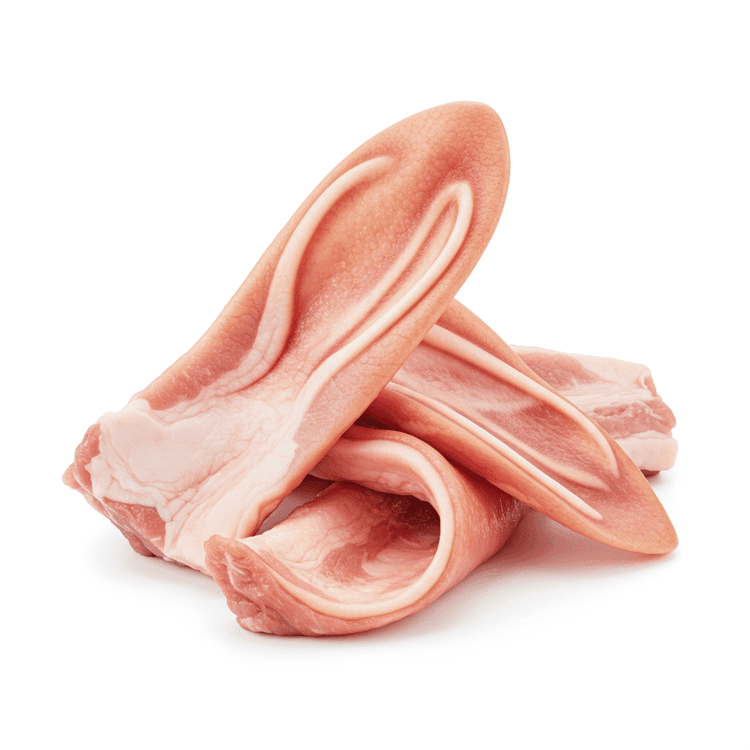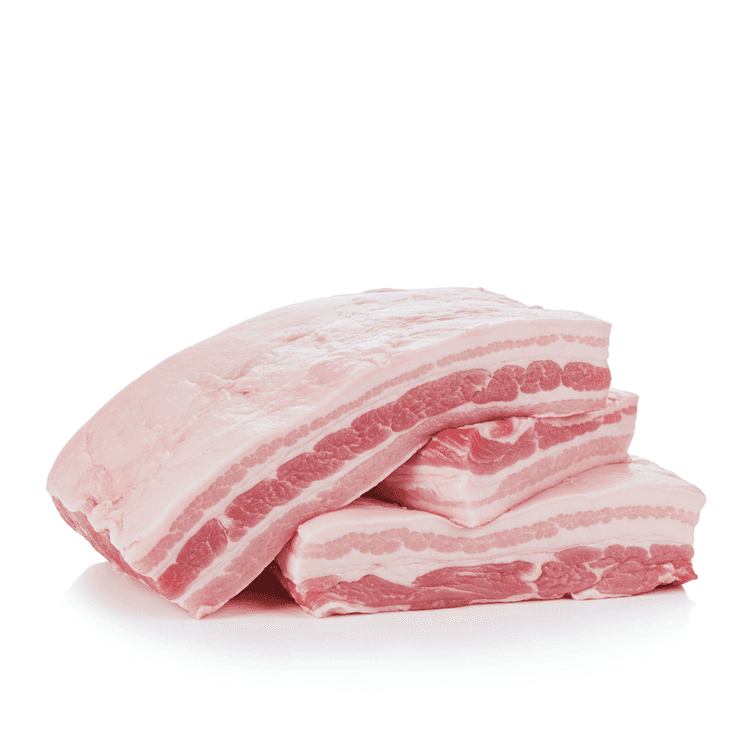
Pork Ears
Pork ears, also known as pig ears, are a unique and flavorful ingredient in many cuisines. They feature a chewy and slightly crunchy texture when cooked properly, offering a satisfying bite. Raw pork ears have a pale pink color and a firm cartilaginous structure. They are rich in collagen and connective tissue, contributing to their distinctive texture and the gelatinous quality they impart to dishes. Many people want to know where to buy pork ears or how to cook with pig ears, because they can be a delicious addition to any meal. Pork ears are often braised, fried, or grilled, offering culinary versatility and a surprisingly delectable flavor.
Common Uses
- Pork ears are often braised or simmered for a long time until tender, allowing the collagen to break down and create a rich, flavorful broth and a soft, palatable texture to the ears themselves. Many want to know how long to boil pig ears to make them tender enough for consumption.
- Thinly sliced and deep-fried pork ears are a popular snack or appetizer, resulting in crispy, golden-brown strips that are often seasoned with spices or served with dipping sauces. Many people wonder how to make crispy pig ears at home using a deep fryer.
- Pork ears can be pickled or used in cold salads, adding a chewy, crunchy element and a savory, slightly tangy flavor to the dish.
- Grilled pork ears offer a smoky flavor and a slightly charred texture, perfect for adding depth to tacos, sandwiches, or other savory dishes.
- Pork ears are sometimes ground and used as a binder or flavoring agent in sausages and other processed meats, contributing to their texture and overall flavor profile.
- Chopped or julienned pork ears can be stir-fried with vegetables and other meats, providing a unique texture and a savory flavor to the stir-fry.
Nutrition (per serving)
Nutrition (per serving)
Calories
227.0kcal (11.35%)
Protein
25.2g (50.4%)
Carbs
0.0g
Sugars
0.0g
Healthy Fat
7.2g
Unhealthy Fat
4.7g
% Daily Value based on a 2000 calorie diet
Nutrition (per serving)
Calories
227.0kcal (11.35%)
Protein
25.2g (50.4%)
Carbs
0.0g
Sugars
0.0g
Healthy Fat
7.2g
Unhealthy Fat
4.7g
% Daily Value based on a 2000 calorie diet
Health Benefits
- Good source of collagen for skin and joint health.
- Provides essential amino acids for muscle building and repair.
- Contains iron, important for red blood cell production and energy levels.
- Offers a source of B vitamins, supporting nerve function and metabolism.
- Can contribute to bone health due to its mineral content.
Substitutes
Chefadora AI is here.
Experience smarter, stress-free cooking.
Storage Tips
Fresh pork ears should be used promptly or stored properly to prevent spoilage. Wrap them tightly in plastic wrap or place them in an airtight container and refrigerate immediately. They will typically last for 1-2 days in the refrigerator. For longer storage, pork ears can be frozen. Wrap them individually or in small portions to prevent freezer burn, and they can be stored in the freezer for up to 2-3 months. Thaw in the refrigerator before cooking.
Marnirni-apinthi Building, Lot Fourteen,
North Terrace, Adelaide, South Australia, 5000
Australia



